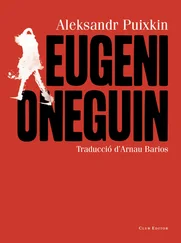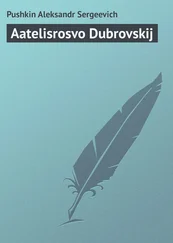Aleksandr Pushkin - Eugene Oneguine [Onegin]. A Romance of Russian Life in Verse
Здесь есть возможность читать онлайн «Aleksandr Pushkin - Eugene Oneguine [Onegin]. A Romance of Russian Life in Verse» весь текст электронной книги совершенно бесплатно (целиком полную версию без сокращений). В некоторых случаях можно слушать аудио, скачать через торрент в формате fb2 и присутствует краткое содержание. Год выпуска: 2007, Жанр: Поэзия, на английском языке. Описание произведения, (предисловие) а так же отзывы посетителей доступны на портале библиотеки ЛибКат.
- Название:Eugene Oneguine [Onegin]. A Romance of Russian Life in Verse
- Автор:
- Жанр:
- Год:2007
- ISBN:нет данных
- Рейтинг книги:4 / 5. Голосов: 1
-
Избранное:Добавить в избранное
- Отзывы:
-
Ваша оценка:
- 80
- 1
- 2
- 3
- 4
- 5
Eugene Oneguine [Onegin]. A Romance of Russian Life in Verse: краткое содержание, описание и аннотация
Предлагаем к чтению аннотацию, описание, краткое содержание или предисловие (зависит от того, что написал сам автор книги «Eugene Oneguine [Onegin]. A Romance of Russian Life in Verse»). Если вы не нашли необходимую информацию о книге — напишите в комментариях, мы постараемся отыскать её.
Eugene Oneguine [Onegin]. A Romance of Russian Life in Verse — читать онлайн бесплатно полную книгу (весь текст) целиком
Ниже представлен текст книги, разбитый по страницам. Система сохранения места последней прочитанной страницы, позволяет с удобством читать онлайн бесплатно книгу «Eugene Oneguine [Onegin]. A Romance of Russian Life in Verse», без необходимости каждый раз заново искать на чём Вы остановились. Поставьте закладку, и сможете в любой момент перейти на страницу, на которой закончили чтение.
Интервал:
Закладка:
Then, the far capital forgot,
Its splendour and its blandishments,
In poor Moldavia cast her lot,
She visited the humble tents
Of migratory gipsy hordes.
During these pleasant years of youth he penned some of his most delightful poetical works: amongst these, The Prisoner of the Caucasus, The Fountain of Baktchiserai , and the Gipsies . Of the two former it may be said that they are in the true style of the Giaour and the Corsair . In fact, just at that point of time Byron's fame—like the setting sun—shone out with dazzling lustre and irresistibly charmed the mind of Pushkin amongst many others. The Gipsies is more original; indeed the poet himself has been identified with Aleko, the hero of the tale, which may well be founded on his own personal adventures without involving the guilt of a double murder. His undisguised admiration for Byron doubtless exposed him to imputations similar to those commonly levelled against that poet. But Pushkin's talent was too genuine for him to remain long subservient to that of another, and in a later period of his career he broke loose from all trammels and selected a line peculiarly his own. Before leaving this stage in our narrative we may point out the fact that during the whole of this period of comparative seclusion the poet was indefatigably occupied in study. Not only were the standard works of European literature perused, but two more languages—namely Italian and Spanish—were added to his original stock: French, English, Latin and German having been acquired at the Lyceum. To this happy union of literary research with the study of nature we must attribute the sudden bound by which he soon afterwards attained the pinnacle of poetic fame amongst his own countrymen.
In 1824 he once more fell under the imperial displeasure. A letter seized in the post, and expressive of atheistical sentiments (possibly but a transient vagary of his youth) was the ostensible cause of his banishment from Odessa to his paternal estate of Mikhailovskoe in the province of Pskoff. Some, however, aver that personal pique on the part of Count Vorontsoff, the Governor of Odessa, played a part in the transaction. Be this as it may, the consequences were serious for the poet, who was not only placed under the surveillance of the police, but expelled from the Foreign Office by express order of the Tsar "for bad conduct." A letter on this subject, addressed by Count Vorontsoff to Count Nesselrode, is an amusing instance of the arrogance with which stolid mediocrity frequently passes judgment on rising genius. I transcribe a portion thereof:
Odessa, 28th March (7th April) 1824
Count—Your Excellency is aware of the reasons for which, some time ago, young Pushkin was sent with a letter from Count Capo d'Istria to General Inzoff. I found him already here when I arrived, the General having placed him at my disposal, though he himself was at Kishineff. I have no reason to complain about him. On the contrary, he is much steadier than formerly. But a desire for the welfare of the young man himself, who is not wanting in ability, and whose faults proceed more from the head than from the heart, impels me to urge upon you his removal from Odessa. Pushkin's chief failing is ambition. He spent the bathing season here, and has gathered round him a crowd of adulators who praise his genius. This maintains in him a baneful delusion which seems to turn his head—namely, that he is a "distinguished writer;" whereas, in reality he is but a feeble imitator of an author in whose favour very little can be said (Byron). This it is which keeps him from a serious study of the great classical poets, which might exercise a beneficial effect upon his talents—which cannot be denied him—and which might make of him in course of time a "distinguished writer."
The best thing that can be done for him is to remove him hence….
The Emperor Nicholas on his accession pardoned Pushkin and received him once more into favour. During an interview which took place it is said that the Tsar promised the poet that he alone would in future be the censor of his productions. Pushkin was restored to his position in the Foreign Office and received the appointment of Court Historian. In 1828 he published one of his finest poems, Poltava , which is founded on incidents familiar to English readers in Byron's Mazeppa . In 1829 the hardy poet accompanied the Russian army which under Paskevitch captured Erzeroum. In 1831 he married a beautiful lady of the Gontchareff family and settled in the neighbourhood of St. Petersburg, where he remained for the remainder of his life, only occasionally visiting Moscow and Mikhailovskoe. During this period his chief occupation consisted in collecting and investigating materials for a projected history of Peter the Great, which was undertaken at the express desire of the Emperor. He likewise completed a history of the revolt of Pougatchoff, which occurred in the reign of Catherine II. [Note: this individual having personated Peter III, the deceased husband of the Empress, raised the Orenburg Cossacks in revolt. This revolt was not suppressed without extensive destruction of life and property.] In 1833 the poet visited Orenburg, the scene of the dreadful excesses he recorded; the fruit of his journey being one of the most charming tales ever written, The Captain's Daughter . [Note: Translated in Russian Romance , by Mrs. Telfer, 1875.]
The remaining years of Pushkin's life, spent in the midst of domestic bliss and grateful literary occupation, were what lookers-on style "years of unclouded happiness." They were, however, drawing rapidly to a close. Unrivalled distinction rarely fails to arouse bitter animosity amongst the envious, and Pushkin's existence had latterly been embittered by groundless insinuations against his wife's reputation in the shape of anonymous letters addressed to himself and couched in very insulting language. He fancied he had traced them to one Georges d'Anthes, a Frenchman in the Cavalier Guard, who had been adopted by the Dutch envoy Heeckeren. D'Anthes, though he had espoused Madame Pushkin's sister, had conducted himself with impropriety towards the former lady. The poet displayed in this affair a fierce hostility quite characteristic of his African origin but which drove him to his destruction. D'Anthes, it was subsequently admitted, was not the author of the anonymous letters; but as usual when a duel is proposed, an appeal to reason was thought to smack of cowardice. The encounter took place in February 1837 on one of the islands of the Neva. The weapons used were pistols, and the combat was of a determined, nay ferocious character. Pushkin was shot before he had time to fire, and, in his fall, the barrel of his pistol became clogged with snow which lay deep upon the ground at the time. Raising himself on his elbow, the wounded man called for another pistol, crying, "I've strength left to fire my shot!" He fired, and slightly wounded his opponent, shouting "Bravo!" when he heard him exclaim that he was hit. D'Anthes was, however, but slightly contused whilst Pushkin was shot through the abdomen. He was transported to his residence and expired after several days passed in extreme agony. Thus perished in the thirty-eighth year of his age this distinguished poet, in a manner and amid surroundings which make the duel scene in the sixth canto of this poem seem almost prophetic. His reflections on the premature death of Lenski appear indeed strangely applicable to his own fate, as generally to the premature extinction of genius.
Pushkin was endowed with a powerful physical organisation. He was fond of long walks, unlike the generality of his countrymen, and at one time of his career used daily to foot it into St. Petersburg and back, from his residence in the suburbs, to conduct his investigations in the Government archives when employed on the History of Peter the Great. He was a good swordsman, rode well, and at one time aspired to enter the cavalry; but his father not being able to furnish the necessary funds he declined serving in the less romantic infantry. Latterly he was regular in his habits; rose early, retired late, and managed to get along with but very little sleep. On rising he betook himself forthwith to his literary occupations, which were continued till afternoon, when they gave place to physical exercise. Strange as it will appear to many, he preferred the autumn months, especially when rainy, chill and misty, for the production of his literary compositions, and was proportionally depressed by the approach of spring. (Cf. Canto VII st. ii.)
Читать дальшеИнтервал:
Закладка:
Похожие книги на «Eugene Oneguine [Onegin]. A Romance of Russian Life in Verse»
Представляем Вашему вниманию похожие книги на «Eugene Oneguine [Onegin]. A Romance of Russian Life in Verse» списком для выбора. Мы отобрали схожую по названию и смыслу литературу в надежде предоставить читателям больше вариантов отыскать новые, интересные, ещё непрочитанные произведения.
Обсуждение, отзывы о книге «Eugene Oneguine [Onegin]. A Romance of Russian Life in Verse» и просто собственные мнения читателей. Оставьте ваши комментарии, напишите, что Вы думаете о произведении, его смысле или главных героях. Укажите что конкретно понравилось, а что нет, и почему Вы так считаете.











